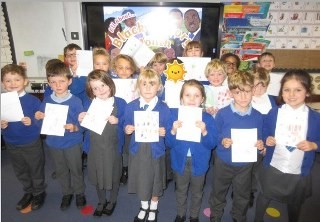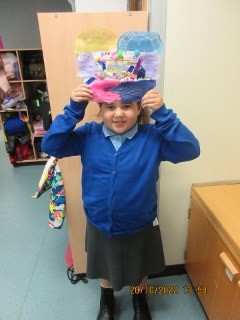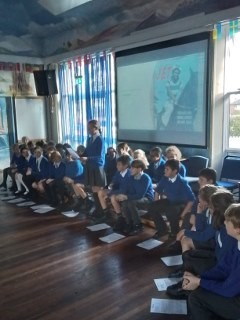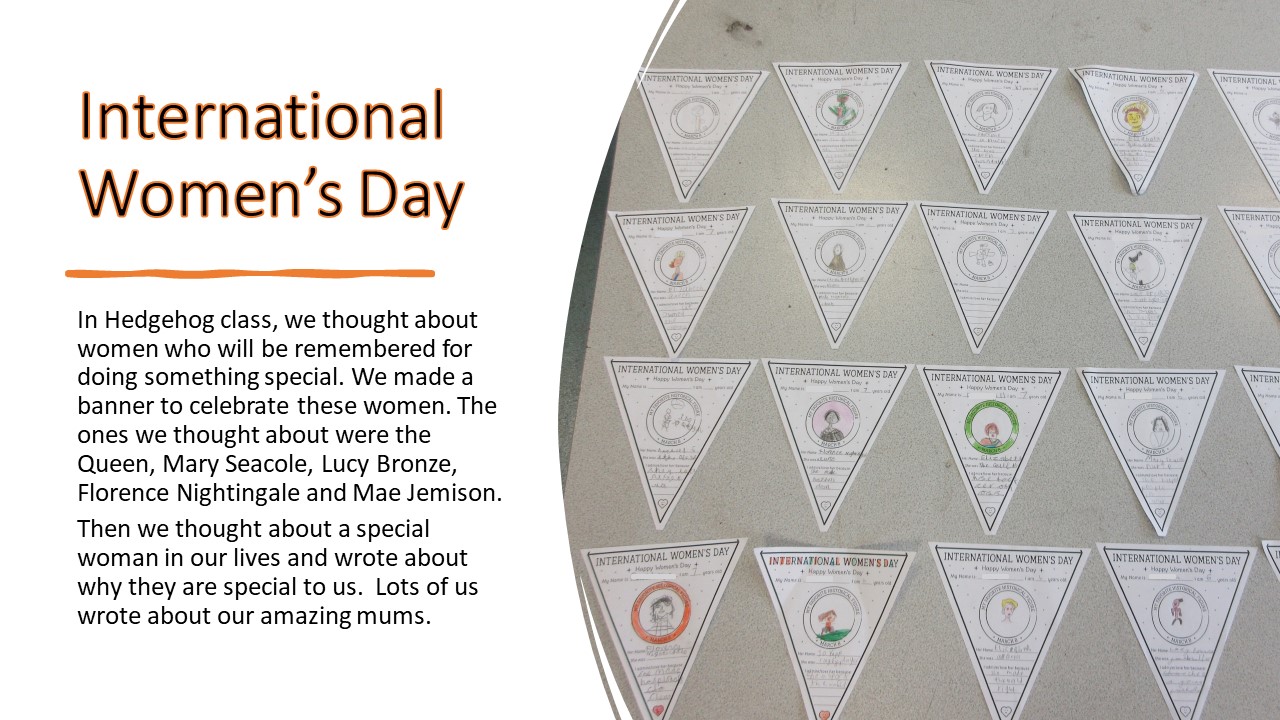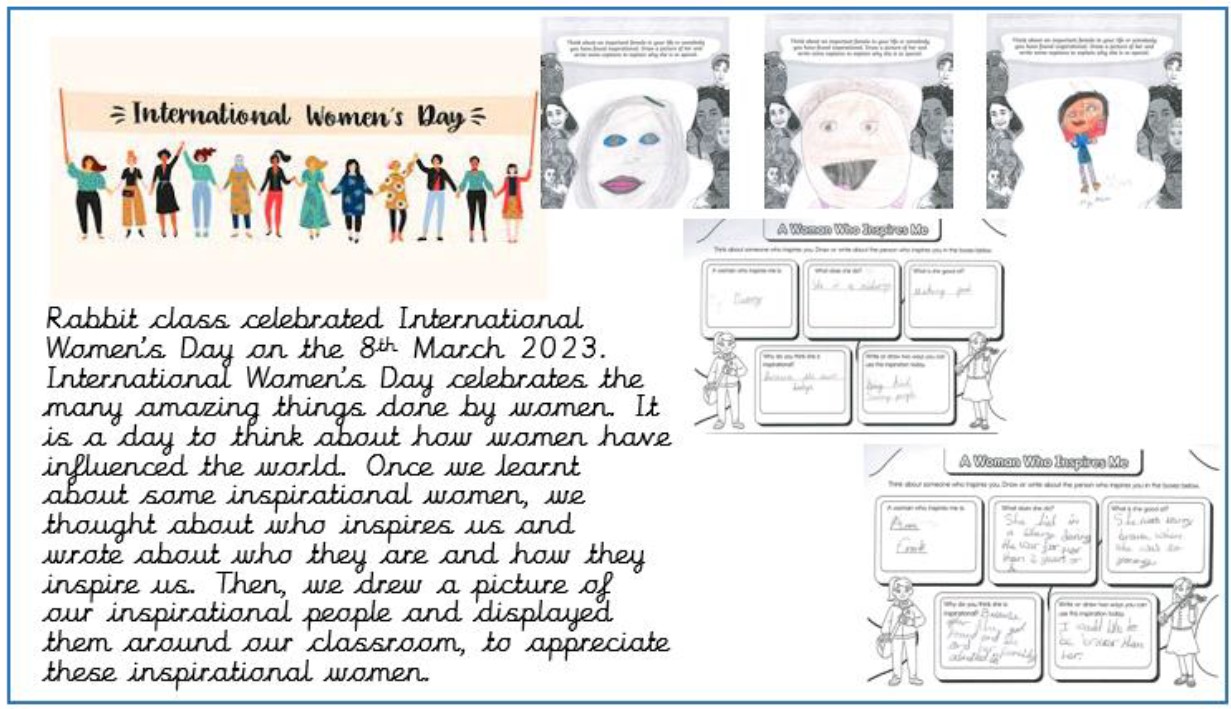Our curriculum sets out: the significant and key knowledge that pupils should know and remember as well as the skills that the children will develop and build on; the key concepts that children will return to in different contexts and year groups; the prior learning that the children can build on; the vocabulary that will be introduced as well as the sequencing and progression of the units to be taught.
The History Curriculum at Cleobury Mortimer Primary School aims to inspire pupils to be curious and creative thinkers who develop a complex knowledge of local and national history and the history of the wider world. We want pupils to develop the confidence to think critically, ask questions, and be able to explain and analyse historical evidence. Through our scheme of work, we aim to build an awareness of significant events and individuals in global, British and local history and recognise how things have changed over time. History will support children to appreciate the complexity of people’s lives, the diversity of societies and the relationships between different groups.
Studying History allows children to appreciate the many reasons why people may behave in the way they do, supporting children to develop empathy for others while providing an opportunity to learn from mankind’s past mistakes.
The History Curriculum at Cleobury Mortimer Primary School aims to support pupils in building their understanding of chronology in each year group, making connections over periods of time and developing a chronologically-secure knowledge of History.
We hope to develop pupils’ understanding of how historians study the past and construct accounts and the skills to carry out their own historical enquiries.
In order to prepare pupils for their future learning in History, our curriculum aims to introduce them to key substantive concepts including power, invasion, settlement and migration, empire, civilisation, religion, trade, achievements of humankind, society and culture.
Cleobury Mortimer Primary School’s History Curriculum enables pupils to meet the end of key stage attainment targets in the National Curriculum and the aims also align with those set out in the National Curriculum.
In order to meet the aims of the National curriculum for History and in response to the Ofsted Research review into History, we have identified the following key strands:
The History Curriculum at Cleobury Mortimer Primary School emphasises the importance of chronological knowledge across all strands to support the development of substantive concepts, historical skills and historical enquiry. These strands are interwoven through all our history units to create engaging and enriching learning experiences which allow the children to investigate history as historians do.
At Cleobury Mortimer, history is studied once per term over six lessons, alternating each half term with geography units. This allows children to have a clear understand of what history is. Each six-lesson unit has a focus on chronology to allow children to explore the place in time of the period they are studying and make comparisons in other parts of the world. Children will develop their awareness of the past in Key stage 1 and will know where people and events fit chronologically. This will support children in building a ‘mental timeline’ they can refer to throughout their learning in Key stage 2 and identifying connections, contrasts and trends over time.
In the Summer Term each year, every class from EYFS to Year 6 will take part in ‘Locality Week’. This involves a study of the local area, with each class having a different focus from the local area. Children partake in enquiry-based learning, asking a question that they would like to answer about the history of the local area. A local historian from the Cleobury Mortimer History Society is also invited in to give more of an insight into what the town looked like in the past and the sort of things that Cleobury Mortimer used to be known for. Children in Year Six also have the opportunity to complete a project with the Mortimer History Society during the Summer Term. This involves three workshops in school and a visit to Ludlow Castle with other schools, where children will learn more about why the Mortimer family was important to the local area.
Each history unit focuses around an enquiry-based question and children are encouraged to follow the enquiry cycle (Question, Investigate, Interpret, Evaluate and conclude, Communicate) when answering historical questions.
Over the course of their history lessons at Cleobury Mortimer Primary School, children develop their understanding of the following key disciplinary concepts:
These concepts will be encountered in different contexts during the study of local, British and world history. Accordingly, children will have varied opportunities to learn how historians use these skills and will confidently develop and use their own historical skill set. As children progress through the school, they will create their own historical enquiries to study using sources and the skills they have developed.
Substantive concepts such as power, trade, invasion and settlement, are clearly identified in lower key stage 2 and revisited in upper key stage 2 (as can be seen in the progression of skills and knowledge document) allowing knowledge of these key concepts to be expanded.
These concepts are returned to in different contexts, meaning that pupils begin to develop an understanding of these abstract themes which are crucial to their future learning in History.
Our scheme follows the spiral curriculum model where previous skills and knowledge are returned to and built upon. For example, children progress by developing their knowledge and understanding of substantive and disciplinary concepts by experiencing them in a range of historical contexts and periods.
Lessons are designed to be varied, engaging and hands-on, allowing children to experience the different aspects of an historical enquiry. In each lesson, children will participate in activities involving disciplinary and substantive concepts, developing their knowledge and understanding of Britain’s role in the past and that of the wider world. Children will develop their knowledge of concepts and chronology as well as their in-depth knowledge of the context being studied.
Lessons incorporate various teaching strategies from independent tasks to paired and group work, including practical hands-on, computer-based and collaborative tasks. Consideration for all learners is made in each lesson, with added support or extensions being used to allow for inclusion of all learners.
Knowledge organisers for each pupil support pupils in building a foundation of factual knowledge by encouraging recall of key facts and vocabulary. Each unit begins with a skills or knowledge catcher activity, this activity is completed at the beginning and end of each unit, allowing for clear progression to be seen in topic books.
Strong subject knowledge is vital for staff to be able to deliver a highly-effective and robust history curriculum. Each unit of lessons will focus on the key subject knowledge needed to deliver the curriculum, making links with prior learning and identifying possible misconceptions.
The impact of children’s progress and their ability to know more and remember more will be visible through a range of methods. These include end of unit quizzes, completion of a knowledge or skills catcher at the beginning and end of each unit, spoken responses, progress over time in pupils’ books, extended writing.
The impact of our history scheme can be constantly monitored through both formative and summative assessment opportunities. Each lesson teachers assess pupils against the learning objectives, showing this as successfully met with a green highlighter over the ‘LO’. Furthermore, each unit has a unit quiz that can be used at the start or end of the unit to asses children’s understanding and a skills or knowledge catcher which can be used at the end of the unit to provide a summative assessment. Opportunities for children to present their findings using their historical knowledge and skills will also form part of the assessment process in each unit.
At the end of each unit, teachers fill in an assessment record against the key knowledge that has been identified for each unit. Children who have not met or have exceeded the expected understanding of this knowledge are recorded at the end of each unit. As the children move through the school, teachers will check these assessment records and ensure that any key knowledge is revisited before moving on with new learning.
After their years of history at Cleobury Mortimer Primary School, pupils should leave school equipped with a range of skills to enable them to succeed in their secondary education. They will be enquiring learners who ask questions and can make suggestions about where to find the evidence to answer the question. They will be critical and analytical thinkers who are able to make informed and balanced judgements based on their knowledge of the past.
The expected impact of following our History Curriculum is that children will:
• Know and understand the history of Britain, how people’s lives have shaped this nation and how Britain has influenced and been influenced by the wider world.
• Develop an understanding of the history of the wider world, including ancient civilisations, empires, non-European societies and the achievements of mankind.
• Develop a historically-grounded understanding of substantive concepts - power, invasion, settlement and migration, civilisation, religion, trade, achievements of mankind and society.
• Form historical arguments based on cause and effect, consequence, continuity and change, similarity and differences.
• Have an appreciation for significant individuals, inventions and events that impact our world both in history and from the present day.
• Understand how historians learn about the past and construct accounts.
• Ask historically-valid questions through an enquiry-based approach to learning
• To create structured accounts.
• Explain how and why interpretations of the past have been constructed using evidence.
• Make connections between historical concepts and timescales.
• Meet the end of key stage expectations outlined in the national curriculum for History.
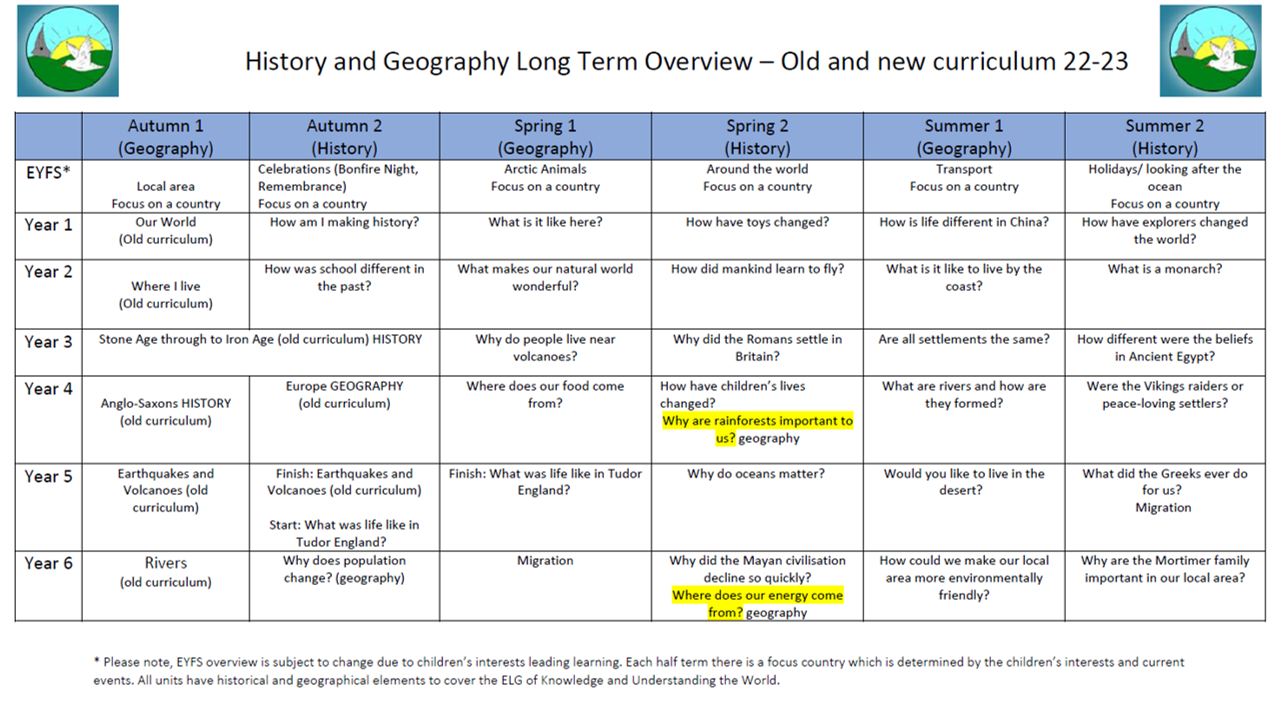
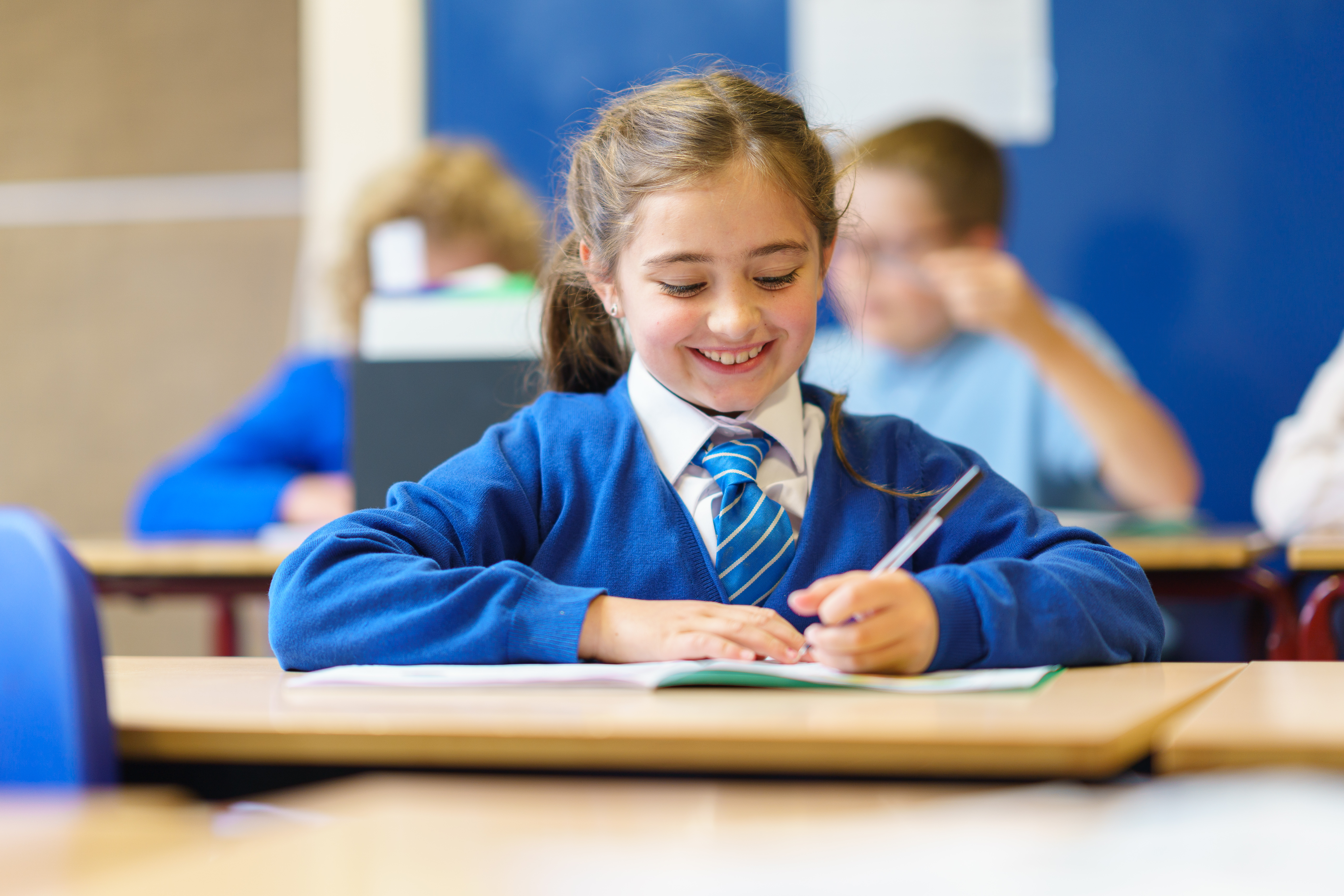
The image below will take you to books about history.
SEND Area of Need Intent Statement for History
During space week, the children learned that the people who travel into space are called astronauts. They looked back to the past at famous astronauts and studied photographs of Mae Jeminson, the first black woman in space.
Inspired by Jeminson, they made and tested out spaceships that they thought she would have liked to travel in.
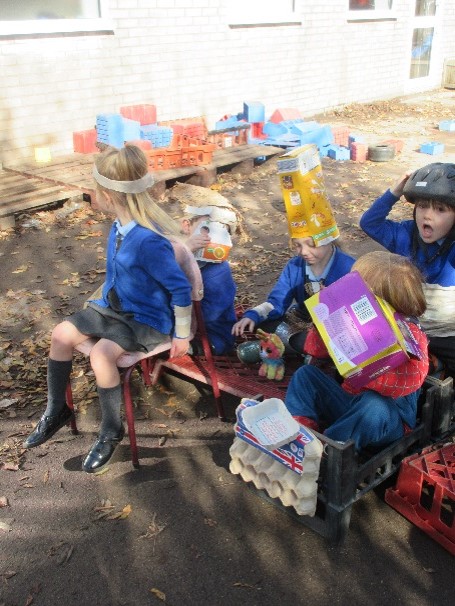
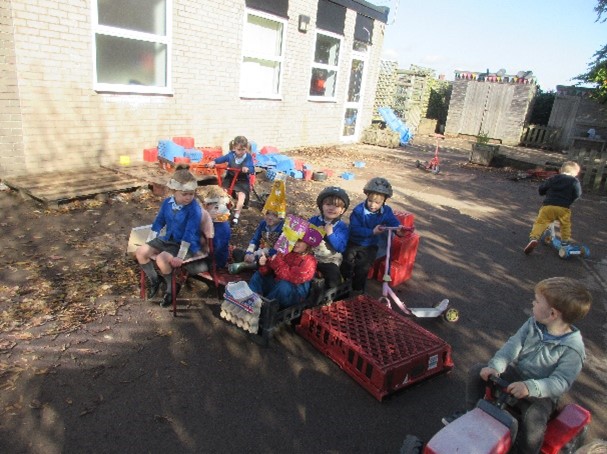
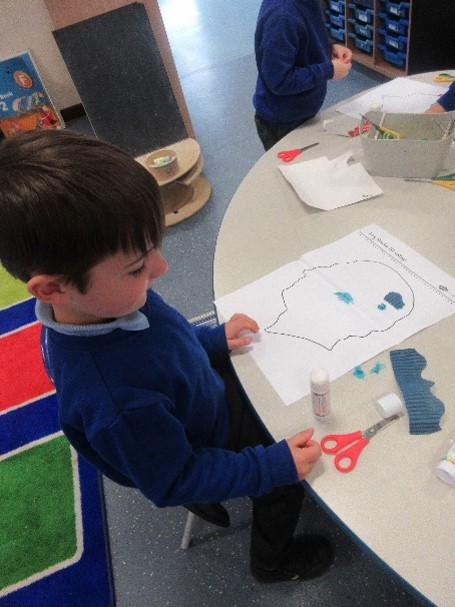
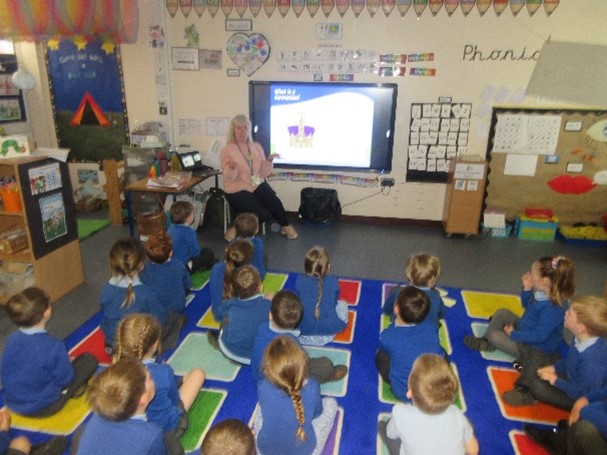
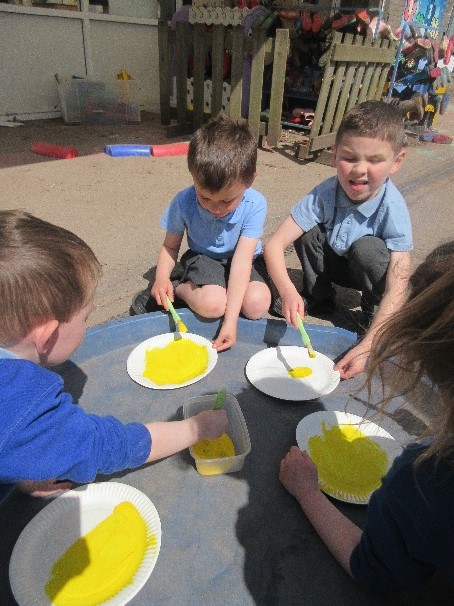
During the week of King Charles Coronation, we were involved with lots of different activities, we completed a time line of King Charles life so far, we made orbs and sceptres, we decorated our own crowns and we watched a PowerPoint about what would happen at the Coronation. On Friday we held our own tea party dressed in red, white and blue.
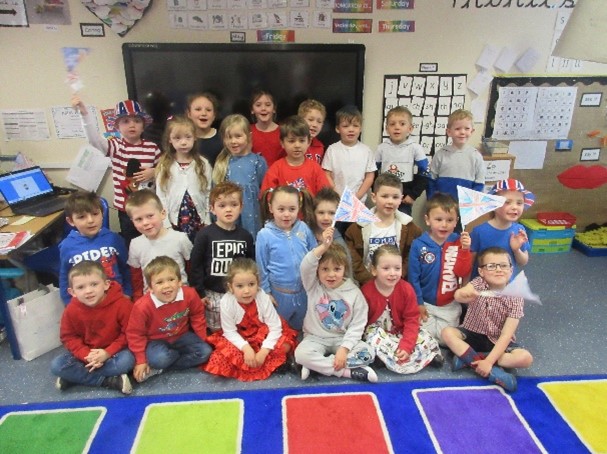
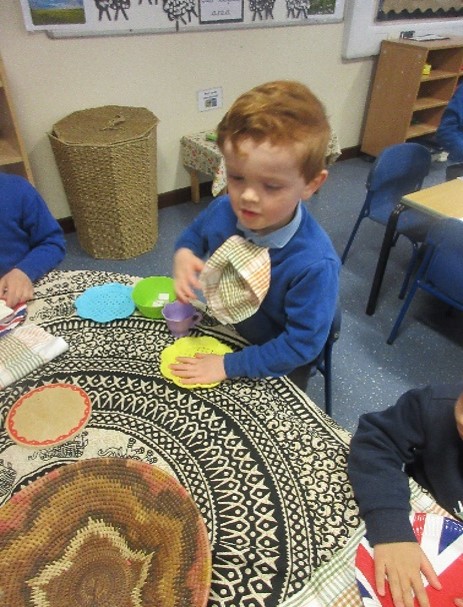
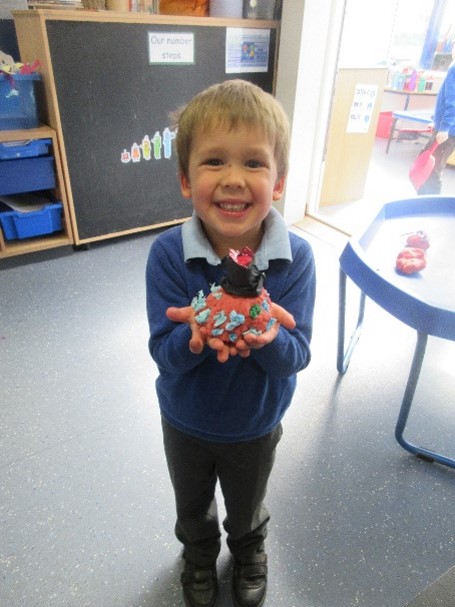
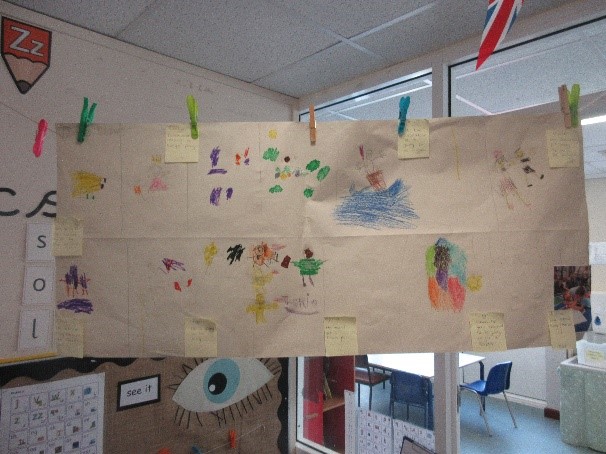
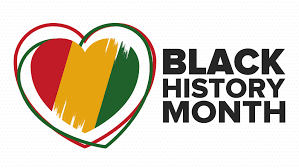
This year for Black History Month, children in classes across the school learnt about important figures or events that are significant, from footballers to mathematicians to poets. They thought about how it is important to remember that October is not the only month in which we learn about Black History and that it is important that everyone sees themselves represented in things such as books, films and on television.
